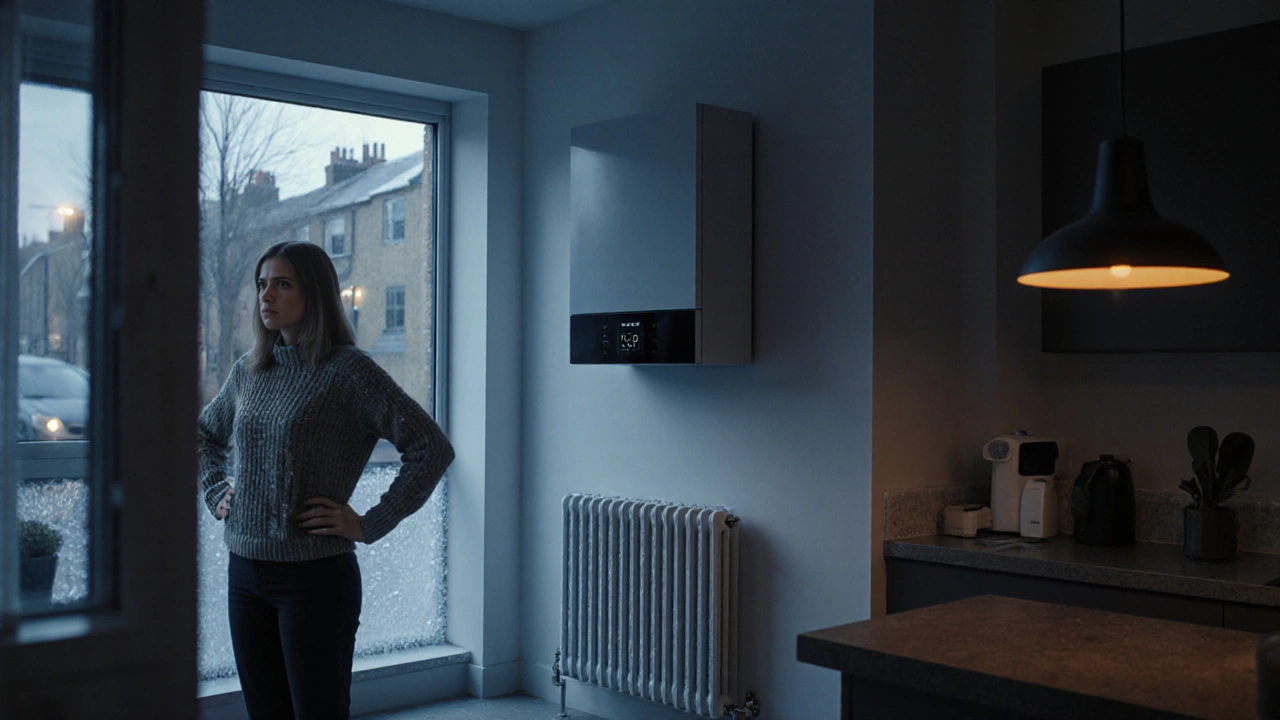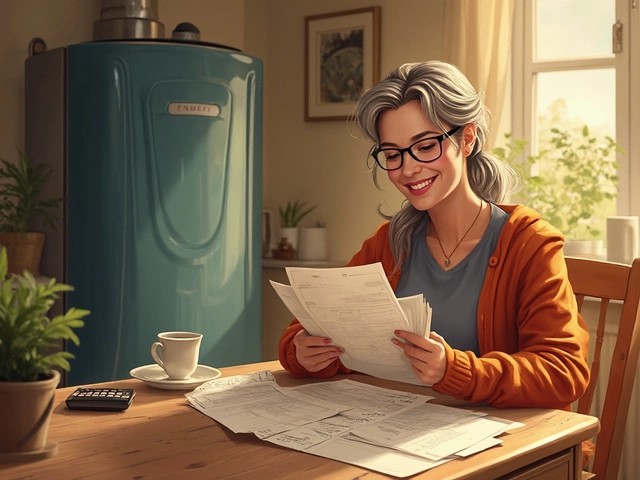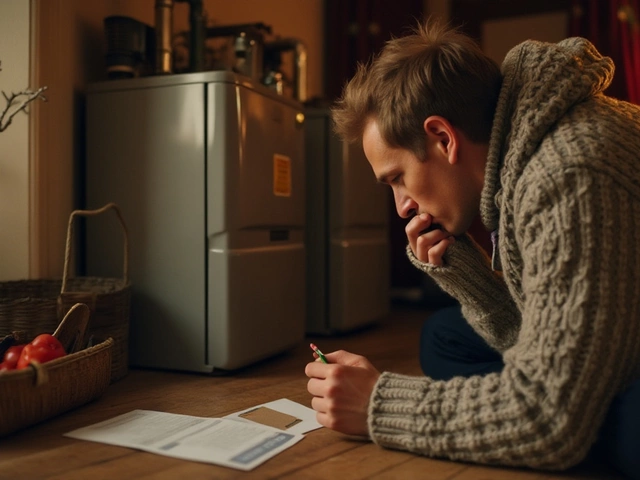Boiler Emergency Response Calculator
Assess Your Boiler Situation
Select your issue to get tailored advice for UK boiler emergencies
Your Boiler Situation
Estimated Response Time
Immediate Action Required
Important Safety Tip
When your boiler suddenly stops heating water or the radiators go cold, the panic is real - but the answer is simpler than you think. The first thing you need to know is who is qualified, insured and quick enough to get your heating back on. Below is a step‑by‑step roadmap for anyone in the United Kingdom facing a broken boiler, from the moment you notice a problem to the final safety check.
Boiler repair is the process of diagnosing and fixing faults in a central heating system that uses water‑filled pipes and a heat‑generating unit. In the UK, this work is regulated by the Gas Safe Register, meaning only certified technicians can legally touch gas‑powered boilers.
1. Identify the type of problem
- No heat at all: The boiler doesn’t turn on, or the display is blank.
- Leaking water: Puddles around the boiler, damp walls or a dripping pipe.
- Strange noises: Gurgling, banging or whistling sounds.
- Low pressure: Gauge below 1 bar when cold.
- Fault codes: Modern boilers show an error code on the screen.
Knowing which category your issue falls into helps you decide whether you need an emergency boiler service or a standard call‑out.
2. Decide if it’s an emergency
Not every breakdown requires a 24‑hour response. Use this quick checklist:
- No heat and no hot water - call now. Your home could become uninhabitable, especially in winter.
- Gas smell or carbon monoxide alarm - evacuate immediately and call the National Gas Emergency Service (0800 111 999).
- Minor leak or low pressure - you can wait up to 24 hours for a standard engineer.
If you tick any emergency box, look for providers that advertise “24‑hour boiler repair” in their description.
3. Find a qualified professional
The cornerstone of safe boiler work in the UK is the Gas Safe Engineer. These are the only technicians legally allowed to work on gas appliances. Here’s how to verify them:
- Check the Gas Safe Register website - you can search by name, company or postcode.
- Look for the yellow Gas Safe ID card on the engineer’s uniform.
- Confirm they have a valid licence for the specific boiler make (e.g., Worcester Bosch, Vaillant, Baxi).
If you’re a tenant, your landlord is responsible for arranging a qualified heating engineer. If you own the property, you’ll need to contact a private service yourself.
4. Gather essential information before you call
Having the right details at hand speeds up the appointment and prevents mis‑quotes. Prepare:
- Boiler make and model (usually on a plate on the front of the unit).
- Exact error code or description of the symptom.
- When the problem started and any recent changes (e.g., new thermostat).
- Your address, postcode and a clear way for the engineer to access the boiler room.
- Whether you have an existing service contract or warranty.
5. Compare emergency vs non‑emergency services
| Aspect | Emergency Boiler Service | Standard Boiler Service |
|---|---|---|
| Response Time | Within 1‑2 hours (often same‑day) | 24‑48 hours or scheduled at your convenience |
| Cost Premium | Typically 30‑50 % higher than normal call‑out | Standard rate - may be covered by warranty |
| Availability | 24 / 7, including holidays | Business hours (9 am‑5 pm, Mon‑Fri) |
| Typical Use Cases | No heat & hot water, gas leak, carbon monoxide alarm | Minor leaks, low pressure, routine maintenance |
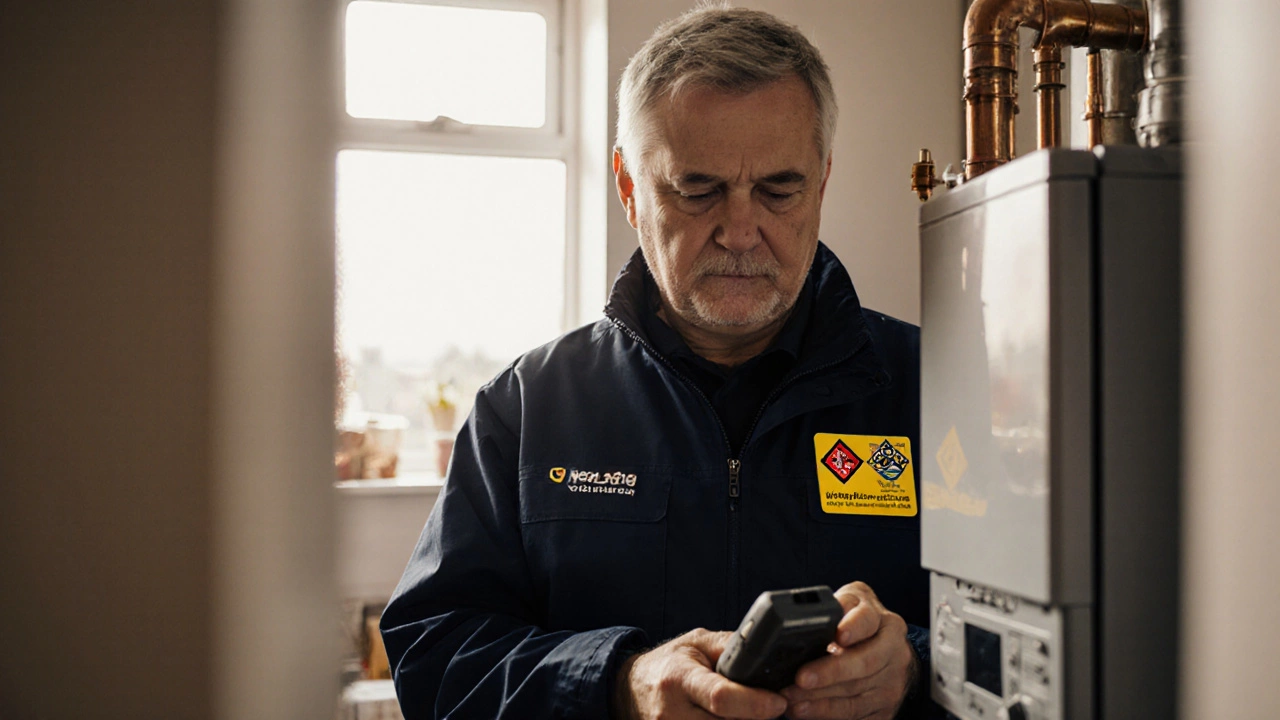
6. What to expect during the visit
A qualified Gas Safe Engineer will follow a standard safety checklist:
- Identify themselves and show a valid Gas Safe ID.
- Turn off the gas supply and isolate the boiler if necessary.
- Run a diagnostic - checking pressure, temperature, thermostat settings, and error codes.
- Explain the fault in plain language and give an upfront cost estimate.
- Carry out the repair, test the system, and confirm the boiler is back to normal pressure (1‑1.5 bar cold, 1.5‑2.5 bar hot).
- Provide a written receipt and a copy of their Gas Safe licence for your records.
After the job, ask for advice on how to avoid the same issue - many problems are preventable with simple maintenance like bleeding radiators or checking the pressure valve.
7. When to involve other parties
Sometimes the boiler issue isn’t purely technical:
- Landlord: If you rent, the landlord must fund the repair under the Landlord and Tenant Act 1985. Notify them in writing and keep a copy of the engineer’s invoice.
- Home insurance: Some policies cover accidental damage to heating systems. Call your insurer to see if a claim is possible before paying for repairs.
- Warranty provider: New boilers often come with a 2‑year parts guarantee and a 10‑year labour guarantee if you’ve purchased an extended service plan.
8. Preventive maintenance tips
Regular care can spare you a frantic call in the future. Follow these simple habits:
- Check the pressure gauge once a month; top up with water if it falls below 1 bar.
- Bleed radiators that feel cold at the top using a radiator key.
- Schedule an annual service with a Gas Safe Engineer - they’ll clean the heat exchanger, test safety devices and calibrate the thermostat.
- Keep the boiler area clear of clutter and ensure adequate ventilation.
These steps reduce the chance of leaks, corrosion and efficiency loss, keeping your heating bills lower.
Quick Checklist Before You Call
- Identify if the issue is an emergency.
- Gather boiler make, model, and error code.
- Verify the engineer’s Gas Safe licence.
- Know whether you’ll be paying out‑of‑pocket, using a warranty, or claiming insurance.
- Have your contact details and a clear description ready.
Follow this list and you’ll get a qualified professional to your door without unnecessary delays.
What does a Gas Safe Engineer do?
A Gas Safe Engineer is certified to install, service and repair gas‑powered appliances, including boilers. They are the only people legally allowed to work on gas lines, test for leaks, and ensure the system meets safety standards.
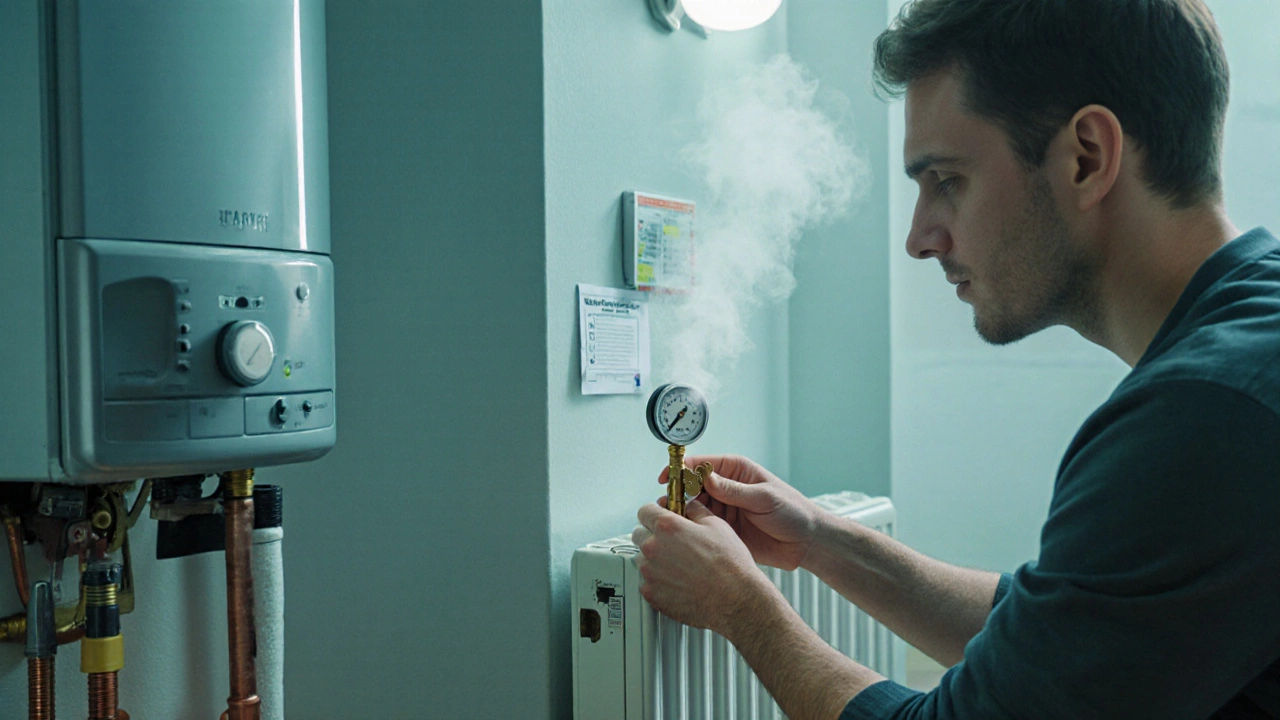
How quickly can I expect an emergency boiler repair?
Most reputable services guarantee a response within 1‑2 hours for genuine emergencies such as no heat, gas leaks or carbon‑monoxide alarms. Availability may vary on public holidays.
Can I repair a boiler myself?
No. DIY boiler work is illegal in the UK and can void insurance. Only a Gas Safe Engineer can safely handle gas connections and pressure tests.
What info should I give the engineer on the phone?
Provide the boiler make and model, any error code displayed, a brief description of the symptom, whether it’s an emergency, and your full address including postcode.
Is boiler repair covered by home insurance?
Some policies include accidental damage cover for heating systems. Call your insurer first; if the claim is approved, you’ll only need to cover any excess.
How often should I have my boiler serviced?
A yearly service by a Gas Safe Engineer is recommended. It keeps the boiler efficient, maintains warranty validity, and catches problems before they cause a breakdown.

